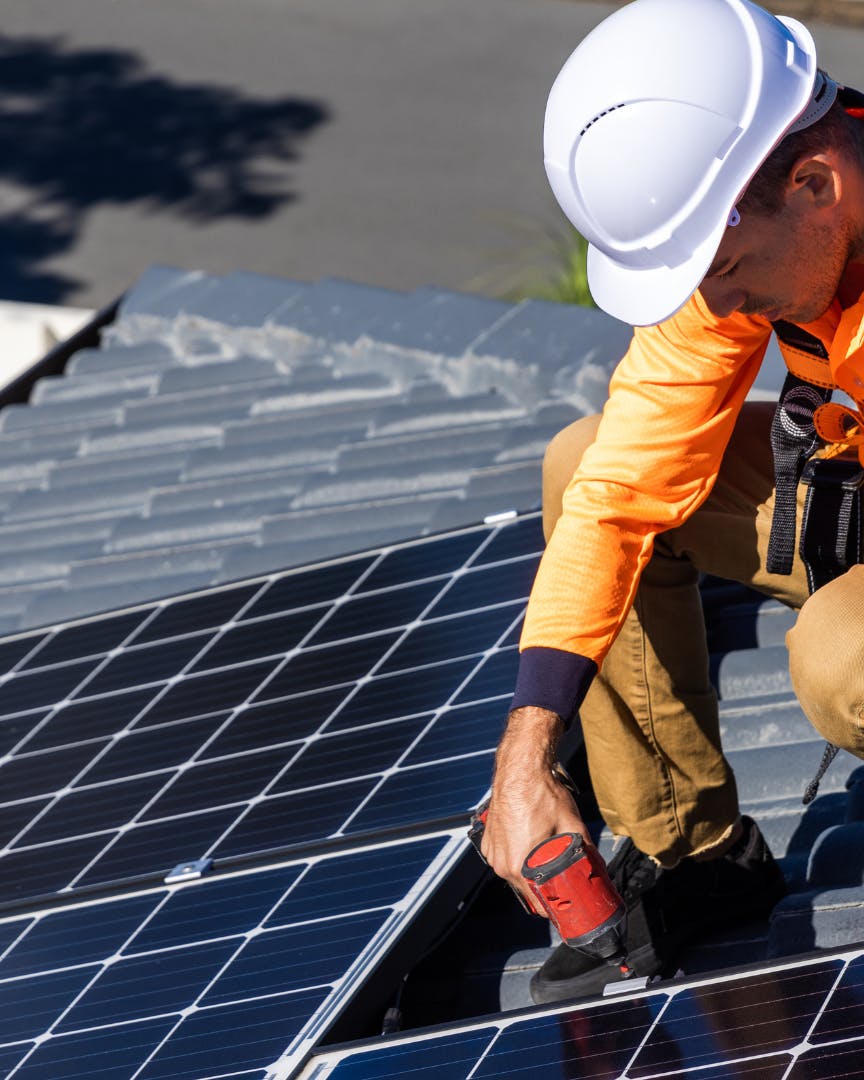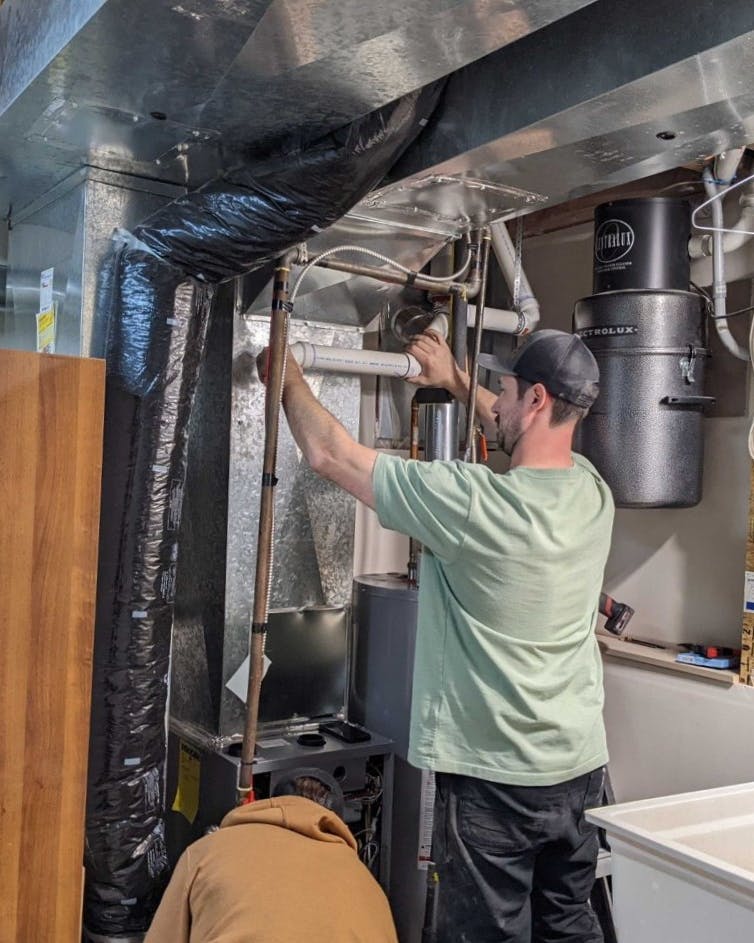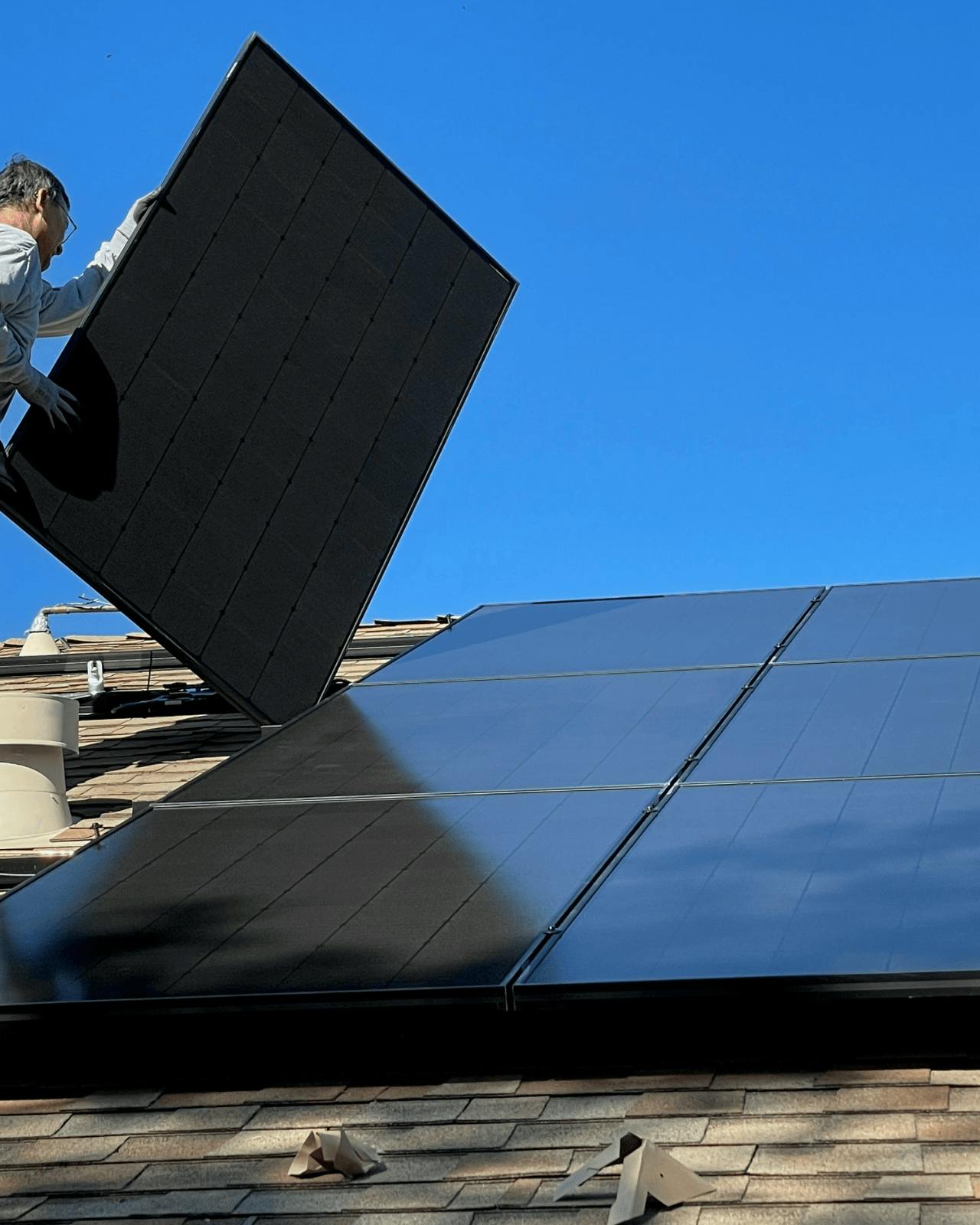Edmonton's Home Energy Retrofit Accelerator Program Facilitates Residential Emissions Reductions
The City of Edmonton recently launched their Home Energy Retrofit Accelerator program, providing financial incentives for homeowners who want to invest in improving the energy efficiency of their home. The program helps homeowners understand their home’s energy use and offers rebates to make improvements and upgrades.
To participate, homeowners must first get an EnerGuide Home Energy Evaluation and label, which is completed by an Energy Advisor. The Energy Advisor will assess the home and work with the homeowner to determine which energy-efficient upgrades are suitable. From there, homeowners can use their EnerGuide report to plan their energy retrofits. Rebates are available for the EnerGuide evaluation and for various upgrades including insulation, windows, space heating equipment, and more. Homeowners are encouraged to maximize their energy efficiency upgrades, with bonuses available for multiple upgrades and renovating to net zero. Energy efficiency upgrades not only reduce carbon emissions but can also make your home healthier and more comfortable. If you are a homeowner in Edmonton, we’d encourage you to take a look at how you can participate.
This program plays an important role in addressing residential sector emissions, which make up almost 20% of emissions in Edmonton. Homeowners can make informed choices about renovating for energy efficiency and with the requirement of publicly sharing participants’ EnerGuide labels, it supports greater awareness of energy efficiency for home buyers too. Over the next three years of the program, it is expected that about 1, 200 Edmonton residents will be able to retrofit their homes. This lays the foundation to addressing emissions in the residential sector, facilitates conversations on climate change and the role household energy reductions can play in achieving emissions reductions, and helps elevate the visibility of energy efficiency in the housing market (increasing demand for efficient products).
However, as we move forward in defining the path to accelerated climate action in Edmonton with the update of its Community Energy Transition Strategy, considerations must be made for how we can scale up residential emissions reductions at the speed needed to stay within our carbon budget and be carbon neutral by 2050. Programs that encourage the uptake of slow incremental measures need to quickly be replaced with policies, regulations, and financial supports that encourage whole home retrofits that result in deep emissions reductions if Edmonton’s climate commitments are to be made.
In it’s work to update the Energy Transition Strategy, the City has identified that Edmonton’s over 350,000 residential buildings will need to be retrofitted for deep energy savings (a reduction in thermal energy demand and electricity demand by 50%) over the next 30 years.
The Pembina Institute recently calculated, in addition to increasing grid and on-site renewables, we would need to retrofit 12,260 units a year, or over 3% of existing homes, across our residential sector.
Along with retrofitting our existing building stock, we will have to improve the energy efficiency standards of new houses, getting all new residences to net zero ready by 2030. This can’t be achieved by market forces alone and flipping a switch in 2029. A supportive local policy framework that embraces planned, stepwise increases in home energy performance over the next ten years is needed to ensure Edmonton’s industry builds capacity and the local economic and climate goals are met. Homeowners would see direct benefits as well – it has been estimated that operating costs for a net-zero energy ready house is 30 percent to 55 percent less than a typical house, depending on region, fuel type and occupant behaviour.
To drive these deeper retrofits and new standards, the City of Edmonton estimated that approximately $180 million in annual incremental investment will be needed. Alberta Ecotrust’s Climate Innovation Fund is committed to amplifying and supporting the necessary accelerated actions and investments through our Building Better and Retrofitting Wiser focus area. Let’s work together to identify opportunities to drive this change and create a thriving green building and energy efficiency industry in Edmonton.
Related posts
Explore our most recent posts.



